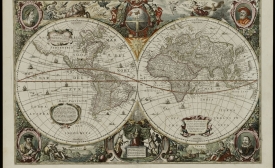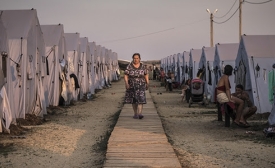ukraine
Witnessing the ninth-largest country in the world (Kazakhstan) do battle with a satirical character (Borat), I decided it was important enough to start writing about from an academic perspective. [...] Kazakhstan continues to reap the benefits of the free press it received as part of Baron Cohen’s innovative marketing campaign for the [2006 Borat] film, though the Borat connections still stings a bit.
The former British Prime Minister Harold MacMillan once commented that the most difficult thing about politics was "events, dear boy, events." Events can be helpful or unhelpful coincidences for statesmen. [...] The West needs to engage seriously with Turkey.

Shaun Riordan's look at the state of geopolitics.

[...] Joseph Stalin's forced 1930's famine against millions of peasants – the majority Ukrainian – a policy of collectivization that led to mass starvation of millions of people. Attempts at reinterpretation were highlighted most recently by the Kremlin-funded propaganda outlet Sputnik News which ran this English-language piece 'Holodomor Hoax: The Anatomy of a Lie Invented by West's Propaganda Machine'.
Gonzaga University alumna Christi Anne Hofland (’05) is leading an experiment in U.S. international relations at the center of a volatile geopolitical drama. As director of the newly opened America House cultural center here, Hofland combines her passions for cultural diplomacy and people-to-people engagement.
A statue of Vladimir Lenin in Odessa, Ukraine, has been refashioned into Darth Vader. A Ukrainian artist, Alexander Milov [...] transformed the statue in response to recent decommunization laws, which require the removal of Communist symbols in Ukraine [...] “I wanted to make a symbol of American pop culture which appears to be more durable than the Soviet ideal,” Mr. Milov told the BBC.
According to some analysts, improving Russia's image abroad has barely been the primary goal of an information campaign. Vasily Gatov, a Russian media researcher based in Boston, suggests that instead of promoting a positive image of Russia abroad, the actual goal of RT is to implement an "armed response" in the West and the Russian liberal media. Their goal is to create anti-Russian hype in the American and European press, and to use such an "anti-Russian narrative" in Russia's domestic policy.







